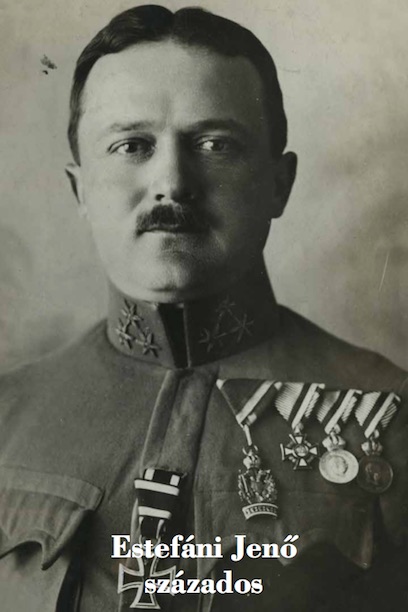The continent’s victors and vanquished alike faced similar problems: everyday life was overshadowed by social unrest and economic hopelessness.
Europe underwent a civilisational crisis after World War I. The population of the continent was racked by popular uprisings, population movement, revolutions, unrest and upheaval, famine, civil wars and coups d’état. The Europe reshaped by the victors became the real loser, because the peace system put an end to its leading role in world politics, economics and culture. While they strove to weaken the losers as much as they could, strangely enough Europe’s great powers – who thought of themselves as victors – had little to feel satisfied with. Many of France’s demands remained unmet, while Great Britain was hit by a wave of protests and strikes staged by discontented workers. The governmental system of parliamentary democracy urged for by the United States produced a crisis of legitimacy in the defeated countries. While before the war there had been only three republics in Europe, by 1918 their number had risen to thirteen. The difficulties involved in this transition is illustrated by the fact that in the period between 1918 and 1922 hardly any governments in Europe managed to remain in office for more than a year. In Germany and Austria the average period between government crises was eight months. In the eyes of the masses who had suddenly become voters, mass democracy soon became a synonym for political instability, lawlessness, insecurity, corruption and clientelism: in other words, chaos.
◆
„In 1919, the European empires were greatly extended. Within ten years, these empires were falling apart and
within a generation were finished."
Norman Stone
„The Englishman never respects any fellow unless that fellow beats him."
David Lloyd George
„The German people, the people of law and order, did not know what to do with their freedom."
Stefan Zweig
„France will never forget its 1.7 million dead."
Charles de Gaulle
„The demands for German reparations are aimed at driving that country to insolvency and ruining it economically."
Raymond Poincaré
„Without America and England, France would perhaps no longer actually exist."
Georges Clemenceau
„Our aim is to starve the whole population – men, women and children, old and young, wounded and sound – into submission. We are enforcing the blockade with rigour, and Germany is very near to starvation."
March 3, 1919
„The hundreds of thousands of non-combatants who have perished since the 11 th November through the blockade were killed with cold deliberation, after victory had been won and assured to our adversaries. Think of that, when you speak of guilt and atonement. We are far from seeking to exonerate Germany from all responsibility for the fact that this world war broke out and was waged as it was, but we emphatically combat the idea that Germany bears the sole guilt."
Ulrich von Brockdorff-Rantzau
„We want complete and absolute independence."
Eamon de Valera
„Ireland had been seething since the Easter Rebellion in 1916, and Irish troops at the depots were now giving away their weapons to the Sinn Feiners."
Robert Graves
„Don’t do business with the English; don’t wear English clothes; don’t appear before an English court! Don’t pay taxes!"
Mahatma Gandhi
„It is my firm belief that Europe today represents not the spirit of God or Christianity but the spirit of Satan. And Satan's successes are the greatest when he appears with the name of God on his lips. Europe is today only nominally Christian. In reality it is worshipping Mammon."
Mahatma Gandhi
„The notion that all men are created equal is an interesting one, but I don’t believe it."
Arthur Balfour
„In no single theatre are we strong enough – not in Ireland, nor England, not on the Rhine, not in Constantinople, nor Batoum, nor Egypt, nor Palestine, nor Mesopotamia, nor Persia, nor India."
Sir Henry Wilson
„What is needed is a handful of determined men with unshakeable conviction, who know what they want and who advance directly to their goal."
Benito Mussolini
„Fascism has no theoretical arsenal, because every system is a mistake, and all theory is a prison."
Benito Mussolini
„Sovereignty is not given, it is taken."
Mustafa Kemal Atatürk
Franz Joseph’s death was felt as a tragedy by his contemporaries.
The military casualties of the war numbered 10 million dead and 21 million wounded.
The victors invoked the principle of “national self-determination”, but their decisions bore no trace of this.
After World War I the United States took over the leading role in world politics from Europe.
The continent’s victors and vanquished alike faced similar problems: everyday life was overshadowed by social unrest and economic hopelessness.
In three devastating waves, the pandemic killed over twenty million people: more than twice the number of soldiers killed in the war.
The organisation founded at President Wilson’s initiative was the first attempt at peaceful resolution of the world’s conflicts.
Violence and intimidation were from the very start the essence of communist dictatorships.
Attempts at transforming European societies and the threat of a communist world revolution posed a serious challenge to European states.
“Divide and rule!” The victors redrew the world map in a way that would possibly perpetuate ethnic and religious conflicts.
The dissolution of the Austro-Hungarian Monarchy plunged the Kingdom of Hungary into its deepest crisis since the Ottoman occupation.
Tisztelt Látogató!
A kommunista vezetőket bemutató adatbázisunk az 1989-ben megjelent Segédkönyv a politikai bizottság tanulmányozásához című kötet online változata.
A jelenleg 532 életrajzot, 6902 kronológiai adatot, valamint 990 bibliográfiai tételt tartalmazó digitális adattár folyamatosan bővül, így a Kommunizmuskutató Intézet megkezdi az állampárti diktatúra többi irányító szervezetére, azok képviselőire vonatkozó adatok összegyűjtését és publikálását.
A több évet igénybe vevő kutatómunka eredményeképp bemutatjuk majd a korszak parlamenti képviselőit, az Elnöki Tanács, a Minisztertanács, a Szakszervezetek Országos Tanácsa, a Hazafias Népfront, valamint a KISZ Kb stb. vezető testületeinek tagjait.
Tovább